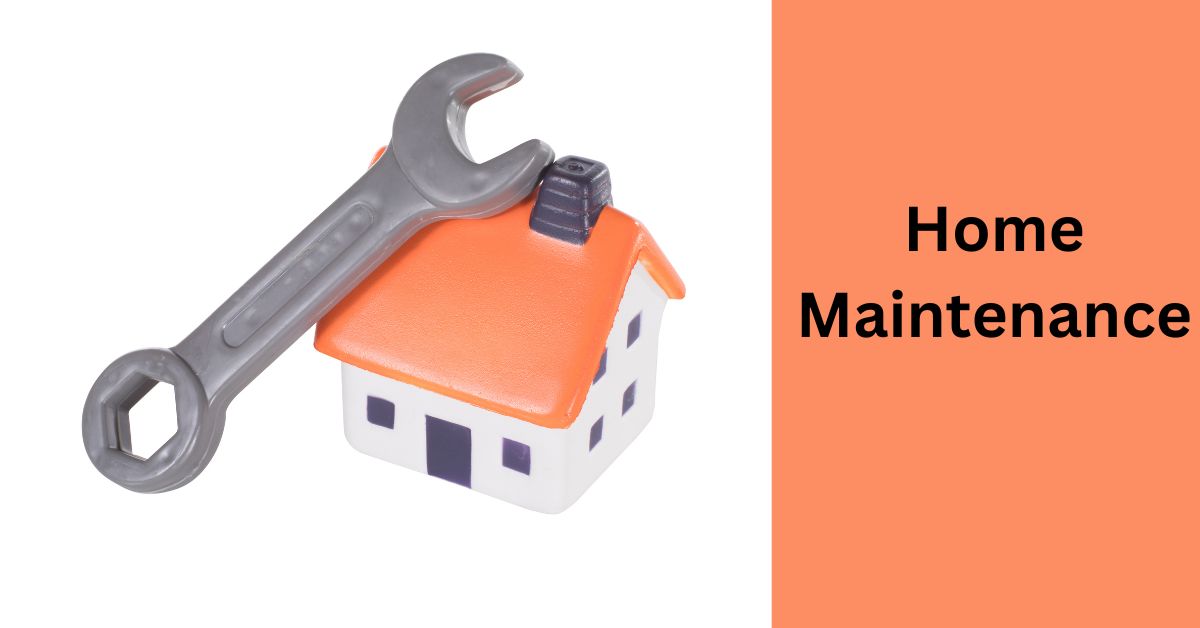Table of Contents
Note: If you came to this post about home maintenance through a random search, please click on this parent page and our home page for more context.
Maintaining the Makeover
Say you have just completed a home remodeling project. You love the results. But don’t stop there. A homeowner’s work is never done. And so, now is the time to start maintaining the makeover
It’s important to have a routine home maintenance checklist because It’s so easy to enjoy just living in our home that we can forget about the many big and little things that can go wrong with it.
And at best these can become an annoyance or an expensive headache. At worst, they can be life-threatening.
Of course, if you are a brand new homeowner, you may be blissfully unaware of the problems that can arise. And even an experienced homeowner can forget what needs to be done to head these issues off before they arise and it’s too late.
What Can Go Wrong?
It may come as a surprise, but the National Association of Home Builders states that there are more than 3,000 components that make up a single-family home! So, given that perspective, it’s easy to imagine that there is plenty that can go wrong.
So, when it comes to routine maintenance, start thinking of your home the same way you think of your car. You wouldn’t dream of neglecting routine maintenance on your car. And you have a lot more money at stake in your home.
Protect Your Investment
Since your home is a much bigger investment than your car, it deserves even better protection with a program of routine maintenance. Preventive routine home maintenance is much less expensive than dealing with large repairs or replacements.
Home Warranty
And you need to back up your maintenance program with a home warranty program. This is your backstop in case of equipment breakdown. Your realtor should have put you into one of these when you bought your home. But, in case not, check out Old Republic Home Warranty.
Home Maintenace Checklists and a Calendar
There are so many things to consider when it comes to maintaining your home, that for easy reference we have broken it down into home exterior and interior system checklists. And at the end, we have summarized it in a seasonal checklist.
Of course, depending on where you live, not all of this will apply to your home. Someone living in Southern California does not have the same concerns as someone living in Michigan.
So, from the list we have compiled here, pick what applies to your home. And to make sure things get done, it’s best to enter those tasks into a calendar that is specific to your home.
Most of these routine maintenance tasks are within the skillset of the average homeowner. But some of them will need professional help for safety and the best results.
And this is a checklist, not a detailed how-to guide. So, where appropriate we have included links to additional information.
Pro tip: Maintain a 3-ring binder containing all operating and maintenance instructions for every item of plumbing, mechanical, and electrical equipment in your home.
Another tip: You might like to check out a digital maintenance tracking option like HomeBinder.
Two-Part Home Maintenance Checklist
Our checklist is in two parts.
In the first part, we have listed items of maintenance that are important and can get overlooked, both on an exterior and an interior basis. We have broken them down roughly into systems.
In the second part, we have categorized maintenance tasks on a seasonal basis. This follows the seasons of the year when it is generally most appropriate to tackle them. We have tried to avoid too much repetition and we have added some more general home maintenance tasks by way of a reminder
Home Exterior
Prevent Water Incursion
Head Off Roof Leaks
If you don’t have any roof leak issues, don’t get lulled into a false sense of security. It’s well worthwhile to have a professional roofing contractor inspect your roof every three years or so.
In the meantime, you can inspect your attic space to see if there are signs of roof leaks. Do this during the rainy season.
Test the Sump Pump
Make sure your sump pump is in good working order to prevent a flooded basement or a damaged foundation. Do this in the Spring ahead of the rainy season and 6 months later in the fall.
And installing an automatic leak detector is a good idea.
Clean Out Basement Window Wells
Make sure leaves and other debris are not clogging the drainage system in the window well. Water build-up here can break your windows and flood your basement.
Keep Your Gutters Clear
Clogged gutters can damage your roof. And severe clogging can cause a gutter to collapse. Use a hose to make sure the gutters are draining properly and the downspouts are handling the run-off
If you are not agile or ladders make you nervous, hire a professional to clean your gutters. It’s not worth risking your neck over.
This is a really good system: LeafGuard
Check Window and Door Weather Stripping
Damaged window and door seals can allow water incursion. And you can also lose heat or cooled air through them, resulting in higher utility bills. So check your weather stripping every spring and fall in advance of hot and cold weather.
Clean Window Weep Holes
The weep holes are designed to drain water collected in the bottom slider channel to the outside. Make sure they are clear or water may overflow into the house.
Pest Control
Check Window Screens
Repair damaged window screens to keep insects out.
Check for Pest Infestation
Pest infestation affects both the interior and exterior. But it starts outside. It is highly recommended that you have a pest control company inspect and treat your home monthly – inside and outside – using sprays and bait boxes.
You want to be able to monitor for wood-destroying pests like termites. And you need to keep rodents away from your home. These critters have an affinity for wiring, which they will chew up, causing expensive damage. They like getting into automobiles too, so a bait box in the garage is a good idea.
A monthly visit from a professional pest control company is well worth the investment.
Home Interior
Safety
Smoke and Carbon Monoxide
Change the batteries in smoke detectors and carbon monoxide detectors twice per year. Press and hold the test button to check the operation.
Fire Extinguishers
Check that fire extinguishers are showing the right pressures and are conveniently located near heat sources. These are:
- Kitchen
- Bedrooms
- Laundry room (in case of a dryer vent issue)
- Fireplace
- Garage
Do this check every 6 months and make sure everyone in the house knows how to use an extinguisher.
Chimney Cleaning
Hire a professional to check and, if necessary, clean your chimney. A buildup of debris and deposits is a fire hazard. And an obstructed chimney will prevent the fire from burning properly and hinder the exhaust of carbon monoxide.
HVAC Systems
Air Filters
Change the air filters monthly. This will keep your electric bills under control and help keep indoor air quality high.
- Related post: Air Quality at Home
Seasonal System Check
Have an HVAC professional check your system twice a year at the start of the warm and cold seasons.
Radiators
If your home heating system uses radiators, you will need to bleed them before the start of the cold season. The purpose of this is to get the excess air out of the lines to ensure efficient operation. Here is a handy guide on how to bleed a radiator.
Check the Home Heating Boiler for Proper Operation
A well-maintained boiler will operate efficiently and save on your utility bills. It’s best to have a professional attend to any actual work to be done on the boiler. But you can check your home heating boiler to see if there are issues that need attention. This includes checking for cracks or holes in the vent pipe, checking for water leaks, and checking that operating pressures are correct.
Ceiling Fans – Cleaning and Rotation
Ceiling fans gather dust. And when you turn a fan on, some of the dust will get airborne. So clean them regularly.
During the summer your ceiling fans should rotate in a counterclockwise direction to push cooler air in a downward direction. This has the effect of making the air feel cooler than it actually is.
During the winter the ceiling fans should be set to rotate in a clockwise direction. This will make the warmer air trapped below the ceiling move toward the floor. This will make the room feel warmer.
Dryer Vents
Over time, and even with a lint screen, there will be a build-up of lint in the vent. This makes the dryer less efficient and can create a fire hazard. So make sure to clean the screen and the vent itself regularly. It helps to have a vent cleaning kit. They come with a variety of rod lengths.
Bathroom Exhaust Vents
Clean the bathroom exhaust vents every 6 months to allow the vent fans to operate efficiently.
Plumbing System
Check the Water Pressure
Water pressure that is too high can cause damage to pipes, connections, and appliances. The pressure should be around 60 PSI (pounds per square inch). It should not be higher than 75 PSI.
You can get a water pressure gauge at your local hardware store. And it may be that you need to replace your pressure-reducing valve.
Check for Toilet Cistern Leaks
Undetected leaking cisterns account for unnecessary water losses that over time will show up on your water bill. So check for a cistern leak by adding a dozen drops of food coloring to the water in the tank. Check back in, say, half an hour, and see if the color is showing up in the toilet bowl. If it is, you need to change the flapper.
Garbage Disposal
Keep your garbage disposal operating properly. Here are some great tips on garbage disposal care.
Plumbing Fixtures
Plumbing fixtures should have water run through them to prevent clogging from the buildup of deposits. So if you have a bathroom that is not used often, put it on the calendar to run the faucets and shower and flush the toilet at least every 3 months.
Flush the Water Heater
Over time sediment builds up in the water heater. This will make it inefficient and shorten its life. You should flush it every year. Go here to learn how to do it.
Service Water Filters
If you have installed water filters or water softeners, make sure the manufacturer’s recommended maintenance is on your schedule.
- Related post: Home Water Filtration
Clean Sink Faucet Aerators
The faucet aerator screws into the end of the faucet. Unscrew it; disassemble the parts; clean them; put them back in the same order; and screw the assembly back into the faucet.
Electrical System
- If the electrical service enters your home overhead, make sure no tree branches are interfering with it.
- Make sure all GFCI (Ground Fault Circuit Interrupter) outlets work properly. Get a testing device
- Check the breaker panels for signs of scorching.
- Check electrical outlets for proper operation. If any are warm to the touch or making any kind of noise, there is likely a problem.
- Check all electrical cords for signs of damage.
If anything electrical is outside your skillset, stay safe and get professional help
Appliances
Refrigerator Coils
Clean your refrigerator coils every 6 months to keep the appliance operating efficiently and save on your electricity bill. It will also extend the life of the unit.
Refrigerator Gaskets
Clean refrigerator gaskets to prevent the leakage of cold air and keep the unit running efficiently. Clean the gaskets with warm water and a sponge. Put it on the calendar to be done every quarter. Of course, if there is an obvious sticky spill on the gasket, clean it right away.
Refrigerator Filter and Ice Cube Maker
Change the refrigerator water filter regularly, per the manufacturer’s instructions to prevent contamination of water and the ice maker. Clean the ice maker at the same time.
Dishwasher Filter
Yes. There is a filter in your dishwasher. A clogged filter obstructs water flow and the unit will not work efficiently. Check your owner’s manual for directions.
Use a dishwasher cleaner.
Range Hood Filter
The range hood filter will collect gunk over time and stop operating efficiently. So put it on the calendar to clean it every 6 months.
Doors
Interior and Exterior Doors
Ease the operation of hinges and locksets with a dry lubricant. Regular oil will attract dust and, over time, gum things up.
3-IN-ONE Lock Dry Lube
- Aerosol formula penetrates quickly and deeply
- Quick-drying, premium lock lubricant
Garage Doors
- Lube the tensioner springs. This will help protect them against fatigue and early failure.
- Check that the garage door is in balance to prevent the opener from working too hard. But never try to adjust the tension yourself. It’s dangerous. Call a professional to do this.
- Check that the auto-reverse safety feature functions properly.
Seasonal Checklist
Spring
Depending on where you are in the country, Spring is the time to prepare for seasonal flooding, “spring clean,” repair any damage that occurred during the winter and prepare for the summer.
- Have a professional walk the roof and check the chimney, shingles, fascia, flashing, and vents for damage
- Clean the gutters and use a hose to make sure they drain properly.
- Inspect the exterior for damaged siding, chipped paint, and missing brick pointing.
- Power wash siding and windows.
- Repair or replace weather stripping.
- Clean/repair/replace damaged window screens.
- Check the foundation for cracking.
- Check the drainage around the home. Make sure water drains away from the foundation.
- Clear dead plant material away from the house.
- Open the valves to the exterior water supply lines.
- Get a septic tank inspection. Pump if necessary.
- Remove the insulation from the hose bibs (exterior faucets).
- Check the operation of the sprinkler system and replace the timer backup battery.
- Check the condition of exterior decking and repair/refinish as necessary.
- Check the condition of the driveway and pathways. Repair as necessary.
- Clean out the garage and oil the garage door tracks.
- Clean the basement.
- Treat the basement floor drain and downspout drains with copper sulfate to control tree roots in the main sewer.
Summer
- Summer is the time for projects, such as exterior painting, staining, and sealing.
- Summer is the time to focus on the lawn and garden.
- Continue the repair and maintenance tasks you started in the Spring.
- Work through some of the more time-consuming maintenance tasks we mentioned earlier.
- If your Spring inspection revealed drainage issues, now is the time to do that grading project.
Fall
Fall is the time to prepare the home for winter
- Recheck the operation of gutters and downspouts.
- Test the sump pump.
- Remove window screens and Install storm windows or shutters
- Winterize the air conditioning units.
- Winterize exterior hose bibs with foam covers
- Winterize the sprinkler system.
- Remove debris from garden water features.
- Re-check for driveway cracks and seal if necessary, to avoid expanding ice damage.
Winter
Winter is when you focus on controlling damage to the roof. It is also a good time for DIY home projects inside and to follow up on some of the interior maintenance items we listed earlier.
- Periodically inspect the roof and get rid of ice dams.
- Don’t let icicles grow. They are dangerous
- Keep an eye on your overhead electrical supply lines and make sure tree branches do not threaten them.
- Shut off valves supplying water to exterior water pipes.
Conclusion on Routine Home Maintenance
Routine home maintenance does take some work but it saves you money in the long run. It also keeps your home running efficiently. And it protects your home warranty coverage.
Pro Tip: We have outlined a large checklist. But make it easy on yourself by taking out a calendar and reducing it all to tasks to be done on individual specific days. This will make the whole thing manageable.
And if you are planning to sell your home, the fact that you have maintained your home well will be reflected both in the market value of your home and its marketability, meaning the speed with which you can sell it.








Leave a Reply